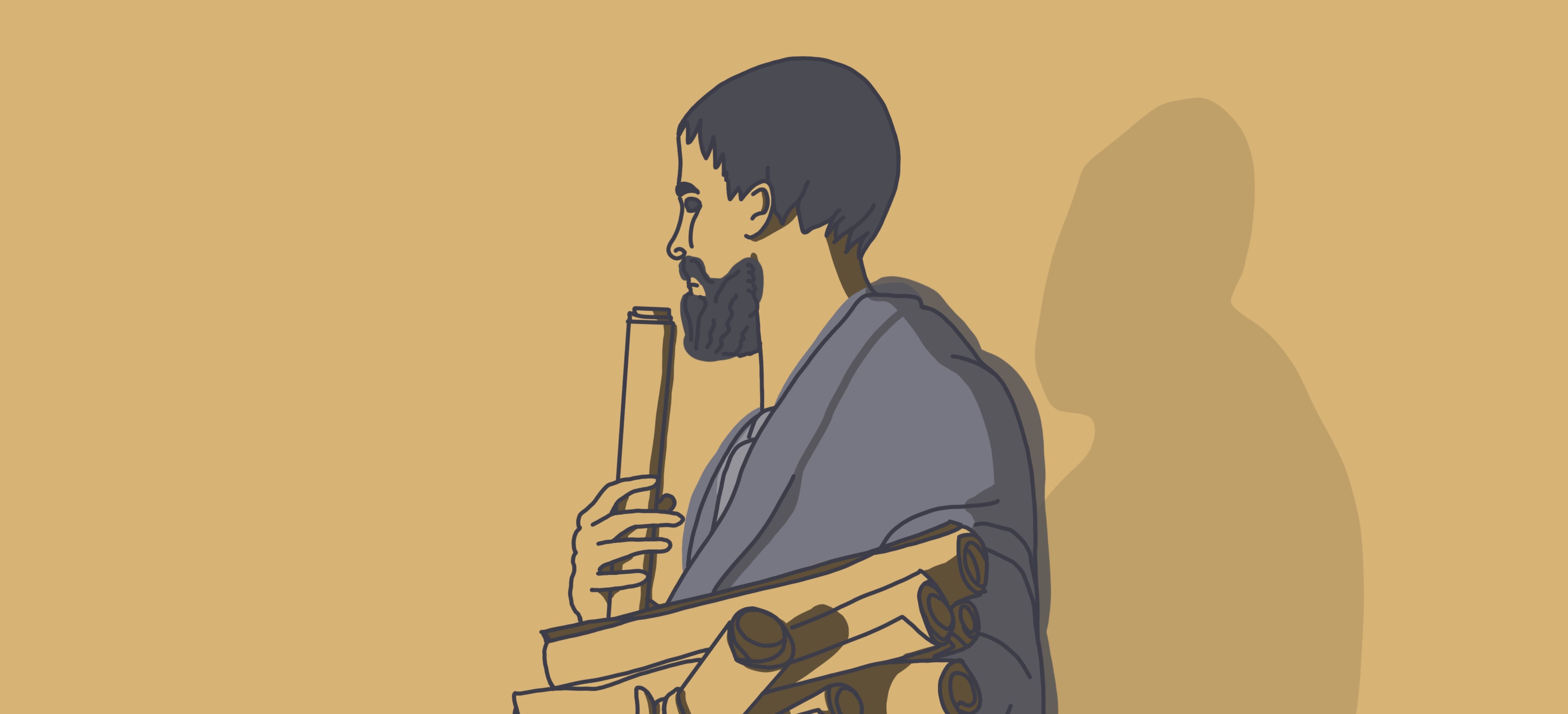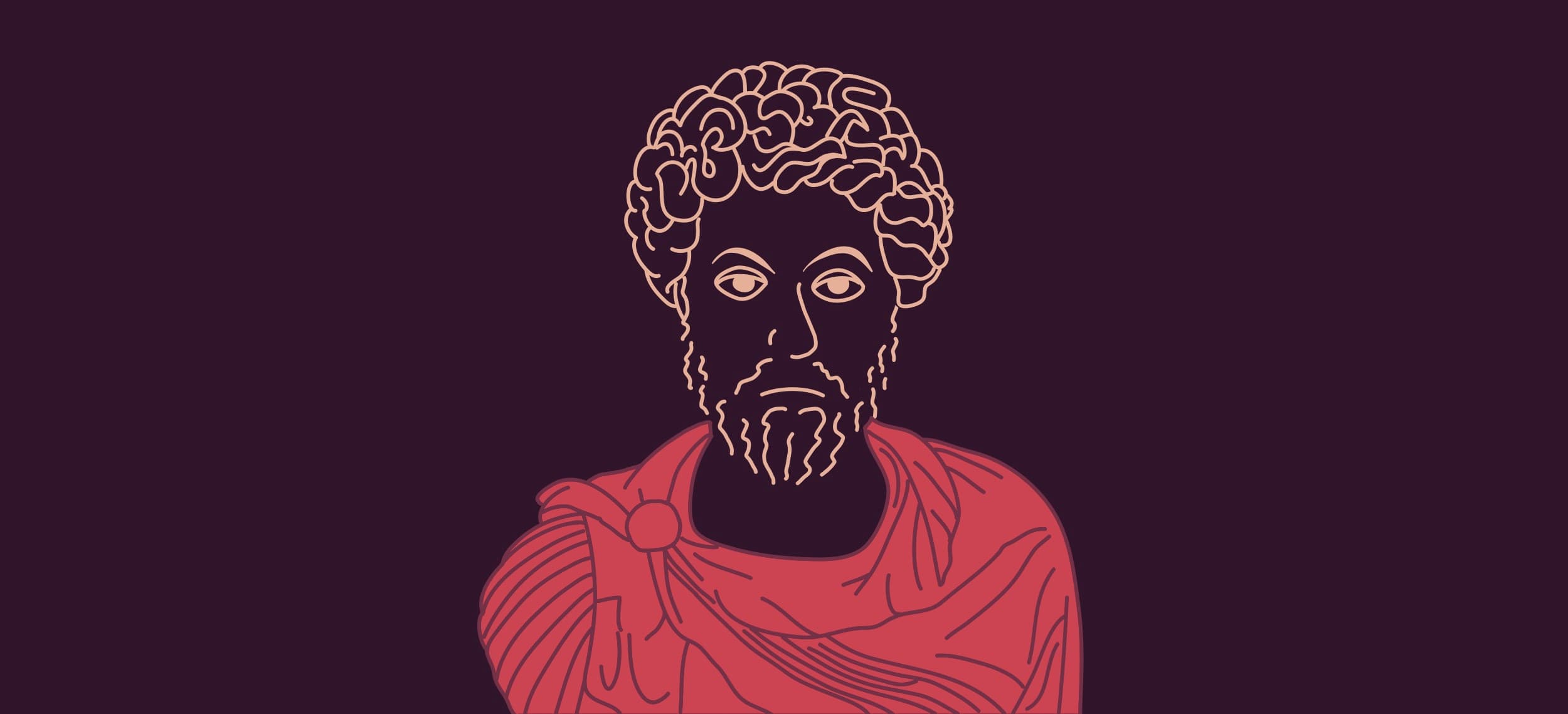Virtue is a Better Goal Than Legacy
The Stoics saw virtue as life's highest objective. I'm starting to see why.

Before I got interested in philosophy, I used to believe the amount of impact one has on the world was the highest objective we should aim to achieve in life.
Or in other words, build the biggest legacy. And if my life ended without a legacy, if there wasn’t a large subset of people who remembered me or knew who I was even just 50 years after I died, my life was… well meaningless.
It’s a demoralizing point-of-view, but I couldn’t reason or justify a better measurement for meaning. I’d rather accept a harsh reality as true than keep my head in the sand and believe a false reality to feel better.
That’s why I was conflicted when reading how strong Marcus Aurelius and the Stoics believed accepting fate and doing good as the highest objective he strived to achieve in life. This is one of my favorite Aurelius quotes about this:
“No matter what anyone says or does, my task is to be good. Like gold or emerald or purple repeating to itself, “No matter what anyone says or does, my task is to be emerald, my color undiminished.”
Marcus Aurelius, Meditations 7.15
I love this quote because he says his task is to be good, like an emerald’s task is to be emerald in color. An emerald can’t be anything but emerald. And Aurelius strives to be good to his core so he couldn’t do anything but good.
At first, I didn’t understand how striving to achieve virtue could lead to a meaningful life. But then I understood Aurelius didn’t seek to achieve meaning. Rather, he sought to achieve goodness. So what did Aurelius know about meaning to disregard it?
According to Marcus Aurelius, Life and Legacy are Trivial and Meaningless
It’s my understanding that Aurelius never believed in a “meaningful” life. In one meditation, he equated the entirety of life to a rock being thrown in the air and coming back down:
“A rock thrown in the air. It loses nothing by coming down, gained nothing by going up.”
Marcus Aurelius, Meditations 9.17
In another, he wrote about exercising awareness in the moment, not to appreciate it, but to realize it’s not much to miss out on when he dies.
“Stop whatever you’re doing for a moment and ask yourself: Am I afraid of death because I won’t be able to do this anymore?”
Marcus Aurelius, Meditations 10.29
I have the impression Aurelius believed life was something that had to be done and put up with as fate demanded. Why? Because death scared him and he wanted to believe he wouldn’t be missing out on anything when he died to better cope with it.
“Human lives are brief and trivial. Yesterday a blob of semen; tomorrow embalming fluid, ash.
“To pass through this brief life as nature demands. To give it up without complaint.”
Marcus Aurelius, Meditations 4.48
What Aurelius had to say about legacy and fame
Legacies are born out of fame and Aurelius had a disdain for it for two reasons. If you’re working towards achieving fame, it means you care too much about what other people think of you. And second, fame doesn’t last long so it’s pointless to pursue it.
“…look at how soon we’re all forgotten. The abyss of endless time that swallows it all. The emptiness of all those applauding hands. The people who praise us - how capricious they are, how arbitrary. And the tiny region in which it all takes place. The whole earth a point in space…”
Marcus Aurelius, Meditations 4.3
It doesn’t matter if people remember you 50 years after death or 200, you will still be forgotten. Think about how many people you know the names of who were alive 200 years ago in 1819. There was a billion people alive in the world then. Can you name more than five?
“So many who were remembered already forgotten, and those who remembered them long gone.”
Marcus Aurelius, Meditations 7.6
My Criticisms of Marcus Aurelius’s Point-of-View
Based on my interpretation of Aurelius’s beliefs, legacy, fame, and being remembered is meaningless. And life itself is void of meaning.
My only criticism is you can take two people, and objectively determine which had more impact, and thus more meaning. For example, taken to the extreme, it’s easy to identify who had more impact and meant more to society: Steve Jobs vs the average joe.
It’s interesting to point out that impact could be positive or negative. For example, Martin Luther King Jr vs Osama Bin Laden. Both had great impact on society, but in opposite directions. If, for sake of argument, we quantified their impact as equal would their meaning be equal? Does meaning take into account positive vs negative impact? I think so.
Marcus Aurelius and the Stoics believed being virtuous and doing good as the highest objective. Then, according to Stoicism, wouldn’t someone who does more good than another have both more impact and more meaning?
The Stoics argued that the only thing in our control is our mind. And it’s rare for people to make an impact at the level of Jobs or MLK. If all it took to make a high impact was desire and tenacity, there would be a lot more people making that high of an impact. But there are lot of factors outside of our control, which makes the highest level of achievement impossible for most people.
Therefore, while there may be objective measures to determine if a life is more impactful or meaningful than another, it’s fruitless to pursue it and make it your highest objective. Instead, the Stoics argue it’s best to make virtue and doing good the highest objective, which is entirely within our control. I’m beginning to understand why.
Understanding How Virtue is Its Own Reward
As Ryan Holiday puts it, “A Stoic believes they don’t control the world around them, only how they respond — and that they must always respond with courage, temperance, wisdom, and justice.”
These are the four core virtues of Stoicism. Aurelius believed justice was the most important, because acting with justice is doing good.
“And a commitment to justice in your own acts. Which means: thought and action resulting in the common good. What you were born to do.”
Marcus Aurelius, Meditations 9.31
I completed Meditations for the first time two years ago. Since then, I’ve been adopting a Stoic mindset and I’ve seen myself undergo a dramatic transformation. Acting with justice and virtue has given me a new level of patience and resilience, improved my relationships, and fostered an affection for all people. It has redirected my ambition from building a legacy and longing for recognition to a mission of doing good.
I started writing out how acting with justice has helped me in all these ways, but I can’t explain it better than Marcus Aurelius himself. Here are some of my favorite meditations on doing good.
“To feel affection for people even when they make mistakes is uniquely human. You can do it, if you simply recognize: that they’re human too, that they act out of ignorance, against their will, and that you’ll both be dead before long. And, above all, that they haven’t really hurt you. They haven’t diminished your ability to choose.”
Marcus Aurelius, Meditations 7.22
“When people injure you, ask yourself what good or harm they thought would come of it. If you understand that, you’ll feel sympathy rather than outrage or anger. Your sense of good and evil may be the same as theirs, or near it, in which case you have to excuse them. Or your sense of good and evil may differ from theirs. In which case they’re misguided and deserve your compassion. Is that so hard?”
Marcus Aurelius, Meditations 7.26
“To do harm is to do yourself harm. To do an injustice is to do yourself an injustice - it degrades you.”
Marcus Aurelius, Meditations 9.4
“When faced with people’s bad behavior, turn around ask when you have acted like that. When you saw money as good, or pleasure, or social position. Your anger will subside as soon as you recognize that they acted under compulsion (what else could they do?)…”
Marcus Aurelius, Meditations 10.30
“That you don’t know for sure it is a mistake. A lot of things are means to some other end. You have to know an awful lot before you can judge other people’s actions with real understanding.”
Marcus Aurelius, Meditations 11.18.v
When you believe doing good as the highest objective, you feel good when you do it. Acting with justice and virtue is its own reward because acting virtuously is synonymous with doing good to others and preserving your integrity. With self fulfillment and happiness as a bonus.
“What is the goal of virtue, after all, except a life that flows smoothly?”
Epictetus, Book I, 108
I’ll leave you with one last meditation that sums up Aurelius’s and the Stoics point-of-view and reason for doing good as the highest objective:
“…And how does it injure you anyway? You’ll find that none of the people you’re upset about has done anything that could do damage to your mind. But that’s all that “harm” or “injury” could mean. Yes, boorish people do boorish things. What’s strange or unheard of about that? Isn’t it yourself you should reproach - for not anticipating that they’d act this way? The logos gave you the means to see it - that a person would act a given way - but you paid no attention. And now you’re astonished that he’s gone and done it. So when you call someone “untrustworthy” or “ungrateful,” turn the reproach on yourself. It was you who did wrong. By assuming that someone with those traits deserved your trust. Or by doing them a favor and expecting something in return, instead of looking to the action itself for your reward. What else did you expect from helping someone out? Isn’t it enough that you’ve done what your nature demands? You want a salary for it, too? As if your eyes expected a reward for seeing, or your feet for walking. That’s what they were made for. By doing what they were designed to do, they’re performing their function. Whereas humans were made to help others. And when we do help others - or help them to do something - we’re doing what we were designed for. We perform our function.”
Marcus Aurelius, Meditations 9.42
You might also enjoy
-

Why I Became Vegan
An introduction to the ethical vegan argument that completely convinced me.
-

Free Will Doesn’t Exist
We can't control our choices because we can't control who we are and this changes everything.
-

Stop Comparing Yourself to Others Or Who You Were Yesterday
Why these comparisons don't make sense and how it improved my mental health.
-

23 Stoic Journal Prompts for Self-Development
Inspired by the journal method of Marcus Aurelius, these journal prompts will help you improve your character, acquire tranquility, and be more of a Stoic.
Never Miss an Article
Get notified by email when I publish a new article.
